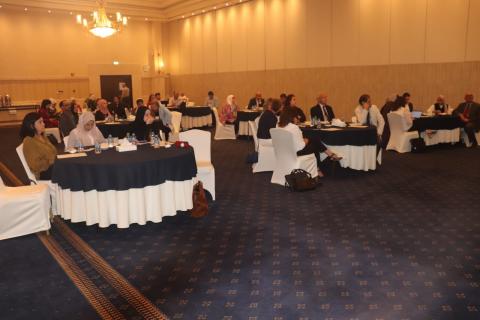

The Higher Population Council, in cooperation with the United Nations Population Fund, held a scientific meeting on Thursday to present and discuss two fact sheets related to the reproductive health of the Jordanian family in general and the elderly, with the participation of the relevant national authorities, as part of the celebration of World Population Day.
The first paper dealt with the role of media and communication in lobbying and raising awareness on reproductive health issues in the Jordanian family. the paper touched on several topics, most notably media and health awareness, the reality of Jordanian media and communication related to reproductive health, mechanisms for activating support and raising awareness on reproductive health issues, as well as providing a number of recommendations in this framework.
The second paper dealt with the topic "reproductive health of the elderly in Jordan" from the perspective of Health for all and at all stages of life, especially since there are elderly men who have wives who are still of childbearing age. the paper aimed to shed light on the needs of older people for Reproductive Health Services and information, identify the gap in data, research and programs for the elderly and reach specific recommendations in this regard.
This paper included several topics on the health of the elderly, namely: The availability of information and services on the reproductive/sexual health of the elderly, the marital status of the elderly, especially with a high percentage of widows among women, chronic incommunicable diseases related to the reproductive/sexual health of the elderly, functional difficulties, i.e. disabilities in the elderly related to reproductive/sexual health, types of cancers related to reproductive health, the pattern of death among the elderly, reproductive infertility, family violence directed at the elderly as a vulnerable segment, the availability of health insurance that ensures access to reproductive health care for the elderly, the availability of specialists in geriatrics, the role of the elderly in influencing the reproductive health of young people from children and grandchildren, the paper made specific recommendations To respond to the reproductive and sexual health needs of the elderly.







